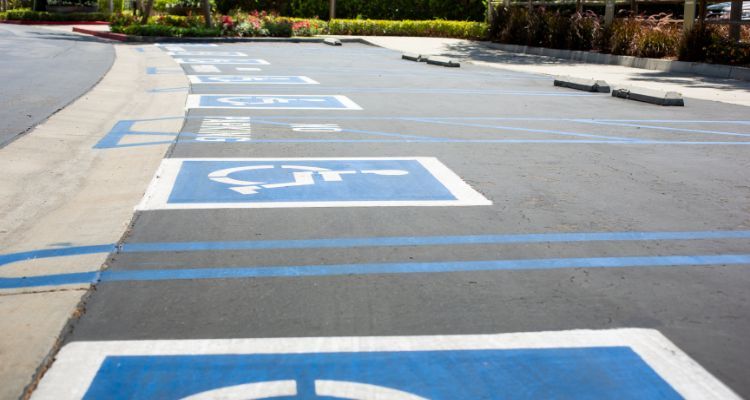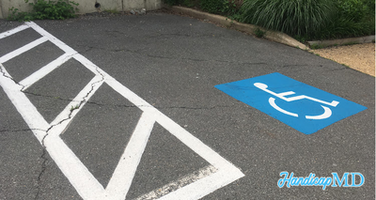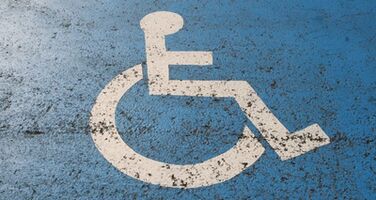
Unveiling the Rules and Regulations of Using a Handicap Placard in North Carolina
Disability tags, also known as disability placards, are essential for individuals with disabilities, granting them access to designated parking spaces that accommodate limited mobility and provide greater convenience. In NC, specific rules and regulations govern the use of these tags to ensure they’re used correctly and fairly. Misuse or misunderstanding of these regulations can lead to fines, revocation of the tag, or even legal action. This article provides a detailed overview of how to properly use a handicap placard in North Carolina, covering eligibility requirements, how to obtain a tag, the do’s and don’ts of tag usage, and tips for staying compliant.
Introduction to Handicap Placards in North Carolina
Disability tags in NC serve as identification that grants eligible individuals the right to park in spaces designated for people with disabilities. These tags are issued by the North Carolina Division of Motor Vehicles (DMV) and come in the form of both tags and license plates. Disability tags are easily movable between vehicles, allowing use when the tag-holder is a passenger. License plates are affixed to a specific vehicle and grant the same handicap parking privileges.
NC ensures that these tags are used only by those who truly need them by setting strict eligibility criteria and requiring physician verification.
Types of Disability Tags Available in North Carolina
NC offers two primary types of handicap permits:
- Permanent Disability Tags: Intended for individuals with long-term or permanent disabilities. These tags are renewable every five years.
- Temporary Disability Tags: Issued to individuals with temporary, short-term disabilities or conditions. These are typically valid for six months and may be renewed if the condition persists.
- Disability License Plates: Affixed permanently to the vehicle, providing the same privileges as tags but eliminating the need for separate display.
In addition to these tags, North Carolina also offers Disability License Plates, which are affixed to the vehicle itself and provide the same privileges as a disability tag.
Eligibility Requirements for Disabled Permits
To qualify for a disability tag in NC, individuals must meet certain medical criteria. Eligibility is generally determined by a certified healthcare professional, and the requirements may include:
- Inability to walk more than 200 feet without resting
- The need for mobility assistance, such as a wheelchair, crutches, or a walker
- Respiratory limitations affecting mobility
- Cardiac, arthritic, or neurological conditions that significantly impair mobility
Applicants must have a healthcare provider’s certification verifying that they meet these criteria. The state Division of Motor Vehicles (DMV) requires this certification to ensure that disability tags are issued to those who genuinely need them.
Medical Certification: Applicants must provide a certification from a licensed physician, physician assistant, or advanced practice registered nurse that verifies their medical condition.
How to Apply for a Handicap Placard in North Carolina
Applying for a North Carolina handicap placard is straightforward. Here’s how:
1. Obtain the Application Form: The Application for Disability Parking Placard (Form MVR-37) is available on the NCDMV website or can be picked up in person at an NCDMV office.
2. Complete the Form: The form must include personal details such as name, address, and contact information. Specify whether you are applying for a temporary or permanent tag or a disability license plate.
3. Get Medical Certification: A licensed HandicapMD healthcare professional must complete the medical certification portion of the form to confirm your eligibility.
4. Submit the Application:
- In-person: Visit an NCDMV office to submit the completed form.
- By mail: Send the form to:
- North Carolina Division of Motor Vehicles
3155 Mail Service Center
Raleigh, NC 27697-3155
- North Carolina Division of Motor Vehicles
5. Pay Applicable Fees: Temporary and permanent tags are typically issued free of charge. Disability license plates may involve the standard vehicle registration fee.
6. Processing Time: Processing times can vary, but most applications are approved within a few weeks. If approved, the tag or license plate will be mailed to your address or available for pickup.
How to Obtain a Permit Online with HandicapMD.com
HandicapMD.com offers a convenient telehealth service that simplifies the process of getting your disabled parking permit by allowing you to:
- Sign Up: Visit the HandicapMD.com website and fill out the necessary form to schedule a consultation.
- Consultation: A certified doctor will assess your medical records and determine whether you meet the eligibility criteria.
- Medical Certification: The doctor will complete the certification section of the Application for Disability Parking Placard (Form MVR-37).
- Submit Your Application: Once your form is completed, submit it to the state's DMV either in person or by mail.
Why
Getting the Permit Online is Beneficial
- Convenience: With HandicapMD.com, you don’t need to visit a doctor’s office. You can complete the entire process from home.
- Expertise: HandicapMD doctors specialize in understanding ADA guidelines and determining eligibility for disabled permits, ensuring a smoother process.
- Efficiency: The service allows for quick evaluations, helping you get your permit faster than traditional method.
Permanent vs. Temporary Disabled Permits
Understanding the difference between permanent and temporary tags helps ensure that the correct type of tag is used and renewed on time:
- Permanent Tags: These require renewal every five years, although medical re-certification is not typically needed upon renewal.
- Temporary Tags: Valid for up to six months, they may be renewed once if the temporary disability persists beyond the original expiration date. After the second period, a new application with a fresh certification is required.
Rules and Regulations for Using a Handicap Placard in North Carolina
NC has clear guidelines for using a handicap placard. These include:
1. Proper Display of the Tag
- Where to Hang the Tag: When parked, the disability tag must be hung from the rearview mirror so it is clearly visible through the front windshield. Remove the tag when the vehicle is in motion to prevent obstructed vision.
- Facing Outward: The side displaying the expiration date and unique ID number should face outward so that parking enforcement can quickly verify its validity.
2. Authorized Use Only
- Personal Use: The person to whom the tag or license plate is issued must be in the vehicle, either as the driver or passenger, when using the designated parking spaces.
- Penalties for Misuse: Using a disability tag without the eligible individual present, lending it to someone else, or using an expired tag can result in fines, penalties, and the possible revocation of the tag.
3. Parking Privileges and Limitations
- Accessible Spaces Only: The disability tag allows parking in marked accessible parking spaces but does not exempt the user from other parking rules, such as metered or time-limited spaces unless explicitly stated by local regulations.
- No Fire Lanes or Loading Zones: Disability tags do not allow parking in fire lanes, no-parking zones, or loading areas that are not specifically marked as accessible.
4. Reciprocity with Other States
- Out-of-State Recognition: NC honors disability tags from other states. Conversely, most states recognize NC-issued tags. It’s wise to check the local regulations of any state you’re visiting to ensure compliance.
Proper Display of Your Disability Permit
NC law requires that a disability tag be displayed on the vehicle’s rearview mirror only when the vehicle is parked. When driving, the tag must be removed to avoid obstructing the driver’s view, which can result in safety hazards and penalties. Make sure that the placard number, expiration date, and other identifying details are clearly visible from outside the vehicle.
When and Where You Can Use Your Handicap Placard
A NC disability tag allows parking in designated accessible spaces marked with the wheelchair symbol. These spaces are generally closer to building entrances, facilitating easier access for those with mobility challenges. However, the tag does not permit parking in:
- No-parking zones
- Loading zones
- Spaces designated for emergency vehicles or specific purposes, such as school bus zones or construction areas
Parking Locations Covered by Disability Tags
In NC, disability tags allow holders to park in various locations, including:
- Accessible Parking Spaces: Designated accessible parking spots in public and private locations, such as malls, hospitals, schools, and parks.
- Metered Parking Spots: Some cities in NC allow free parking at metered spaces for individuals with a disability tag, though it’s important to check local regulations as policies may vary by municipality.
Misuse of Disability Tags and Consequences
Using a disability tag improperly is illegal in NC and can lead to significant consequences:
- Fines and Citations: Misuse, including using a tag without the eligible person present, can result in fines. Fines vary depending on the locality but can be substantial.
- Revocation of Tag: Repeated misuse or fraudulent use may result in the revocation of the tag.
- Legal Consequences: Deliberate fraud, such as using a tag belonging to a deceased individual, can lead to criminal charges.
How to Report Misuse of Disability Tags in North Carolina
Misuse of disability tags is a serious issue, and NC encourages citizens to report any suspected misuse. If you notice a disability tag being used fraudulently or improperly, you can contact local law enforcement or the DMV to report the violation. Be prepared to provide the tag number and a description of the violation.
Renewal and Replacement Procedures for Disability Tags
Renewing Permanent Tags:
- Validity Period: Permanent tags in NC are valid for five years. The NCDMV may send renewal notices, but setting a personal reminder is a good practice.
- Medical Recertification: For renewals, a new medical certification may be required to confirm continued eligibility.
Replacing Lost or Stolen Tags:
- Report the Loss: Notify the North Carolina Division of Motor Vehicles if your disability tag is lost or stolen. If stolen, it’s also advisable to report it to local law enforcement.
- Replacement Application: Complete a replacement request form and submit it to the NCDMV.
- Fees: A small fee may apply for replacing lost or stolen tags. Contact the NCDMV for details on replacement costs and required documentation.
Temporary Disability Tag Extensions and Renewals
Temporary tags are intended for short-term needs but may be extended once if medically necessary. To renew, submit a fresh application with updated certification from a healthcare provider, explaining why the disability still requires accessible parking access.
Tips for Proper Use and Care of Your Disability Tag
1. Keep It Clean and Visible: Ensure your tag remains legible by cleaning it regularly with a soft cloth. Dirt or smudges can make it difficult for parking enforcement to read the expiration date or ID number.
2. Store It Safely: When not in use, store your disability tag in a safe, designated spot in your vehicle, such as the glove compartment or center console, to prevent damage or loss.
3. Avoid Misuse: Using the tag when the authorized individual is not present or lending it to another person is illegal and can result in penalties.
4. Educate Family Members and Caregivers: If others drive you frequently, ensure they understand how to use the tag correctly and the importance of compliance with NC’s rules.
Common Mistakes to Avoid
1. Leaving the Tag Hanging While Driving: One of the most common mistakes is leaving the tag hanging from the rearview mirror while driving. This practice can obstruct your view and violate state safety regulations. Always remove the tag before driving.
2. Using an Expired Tag: Driving with an expired disability tag can result in fines and the potential loss of parking privileges. Make sure to renew your tag before it expires.
3. Improper Display: If the tag is not displayed correctly, parking enforcement may not recognize it, which could lead to a ticket. Ensure the tag is facing outward and hanging from the rearview mirror when parked.
4. Unauthorized Use: Allowing someone to use your disability tag when you are not present is illegal and can result in severe penalties, including fines and the suspension or revocation of the tag.
Out-of-State Disability Tags in North Carolina
Visitors with disability tags from other states can use accessible parking spots in NC. The state recognizes all valid disability tags issued by other states, as well as internationally recognized disability parking permits. Out-of-state visitors must still adhere to local parking regulations, including any time limits or fees.
Additional Benefits of Having a Disability Tag
Beyond the convenience of accessible parking, having a disability tag in NC offers several other benefits:
- Priority Parking Access: Many public places provide spots close to entrances and exits for easier access.
- Peace of Mind: Disability tags reduce the stress associated with finding a suitable parking spot.
- Accessibility: Tags grant parking access in locations with limited parking availability, supporting independence and mobility.
FAQs About Using Disability Tags in North Carolina
Q1: Can someone else use my disability tag if I am not in the vehicle?
No, the tag is only for use when the individual with the disability is present in the vehicle, either as the driver or passenger.
Q2: How do I display my disability tag correctly?
In NC, hang the tag on the rearview mirror while parked. Remove it while driving to avoid obstructing your view.
Q3: Can I park for free at metered spaces with my disability tag?
Some cities in NC allow free metered parking for vehicles displaying a disability tag. However, check local regulations as policies vary.
Q4: Do I need a new doctor’s certification to renew my permanent disability tag?
Generally, no additional medical certification is required to renew a permanent tag every five years. Temporary tags do require re-certification for renewal.
Q5: What should I do if my disability tag is stolen?
Report the theft to local authorities and apply for a replacement at the DMV. You may need to provide identification and complete a replacement form.
Q6: How can I report misuse of a disability tag?
You can report misuse to local law enforcement or the DMV by providing the tag number and details of the suspected misuse.
Q7: Can I use my NC disability tag in other states?
Yes, most states recognize disability tags issued by NC, allowing you to use them when traveling. It’s a good idea to check local regulations for any specific restrictions or requirements.
Q8: How do I replace a lost or stolen disability tag?
Contact the NCDMV to report the loss and complete a replacement form. A small fee may apply, and additional documentation may be required for stolen tags.
Q9: Are there fees for renewing a disability tag in NC?
Permanent tags are generally renewed without a fee. However, license plates may include standard registration costs. Contact the NCDMV for details.
Q10: What should I do if my medical condition improves?
If your medical condition improves and you no longer need a disability tag, notify the NCDMV and return the tag or license plate to avoid misuse and maintain the integrity of the system.
Conclusion: Staying Compliant with NC's Disability Tag Regulations
Understanding the rules and regulations for using a handicap placard in North Carolina is essential for ensuring that you make the most of your parking privileges while complying with state laws. From eligibility requirements and proper display practices to renewing and replacing tags, following these guidelines helps maintain the system’s integrity and supports individuals who genuinely need accessible parking.
By following the tips outlined in this guide and adhering to NC’s regulations, you can enjoy the benefits of your disability tag without complications. Whether you are a resident or a visitor, knowing and applying these rules can make your experience with accessible parking easier and more efficient.
Proper usage not only benefits you but also ensures that accessible parking spaces are available for those who need them most. Stay informed, follow the rules, and make responsible use of your disability tag to help maintain a supportive community for individuals with disabilities.
.png)






